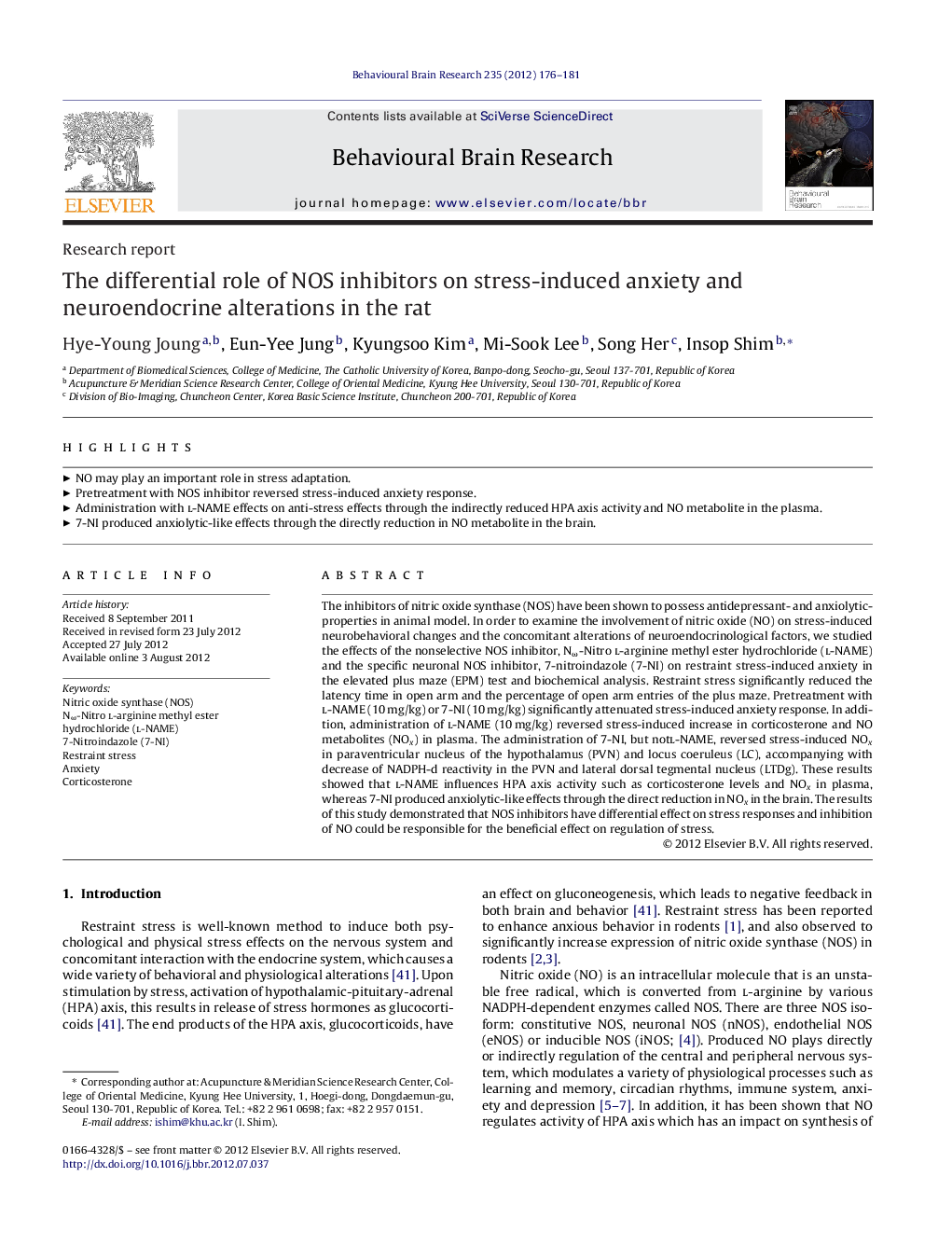| Article ID | Journal | Published Year | Pages | File Type |
|---|---|---|---|---|
| 6259249 | Behavioural Brain Research | 2012 | 6 Pages |
The inhibitors of nitric oxide synthase (NOS) have been shown to possess antidepressant- and anxiolytic-properties in animal model. In order to examine the involvement of nitric oxide (NO) on stress-induced neurobehavioral changes and the concomitant alterations of neuroendocrinological factors, we studied the effects of the nonselective NOS inhibitor, NÏ-Nitro l-arginine methyl ester hydrochloride (l-NAME) and the specific neuronal NOS inhibitor, 7-nitroindazole (7-NI) on restraint stress-induced anxiety in the elevated plus maze (EPM) test and biochemical analysis. Restraint stress significantly reduced the latency time in open arm and the percentage of open arm entries of the plus maze. Pretreatment with l-NAME (10Â mg/kg) or 7-NI (10Â mg/kg) significantly attenuated stress-induced anxiety response. In addition, administration of l-NAME (10Â mg/kg) reversed stress-induced increase in corticosterone and NO metabolites (NOx) in plasma. The administration of 7-NI, but notl-NAME, reversed stress-induced NOx in paraventricular nucleus of the hypothalamus (PVN) and locus coeruleus (LC), accompanying with decrease of NADPH-d reactivity in the PVN and lateral dorsal tegmental nucleus (LTDg). These results showed that l-NAME influences HPA axis activity such as corticosterone levels and NOx in plasma, whereas 7-NI produced anxiolytic-like effects through the direct reduction in NOx in the brain. The results of this study demonstrated that NOS inhibitors have differential effect on stress responses and inhibition of NO could be responsible for the beneficial effect on regulation of stress.
⺠NO may play an important role in stress adaptation. ⺠Pretreatment with NOS inhibitor reversed stress-induced anxiety response. ⺠Administration with l-NAME effects on anti-stress effects through the indirectly reduced HPA axis activity and NO metabolite in the plasma. ⺠7-NI produced anxiolytic-like effects through the directly reduction in NO metabolite in the brain.
